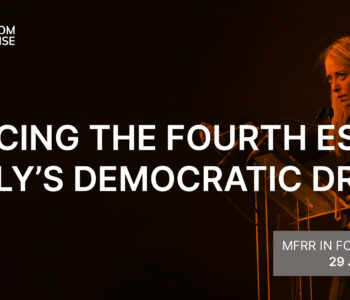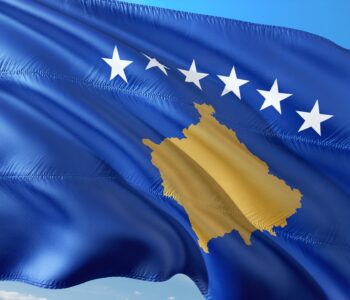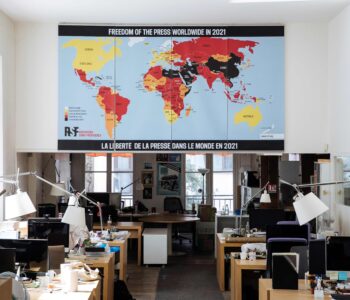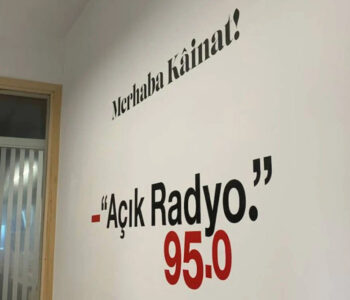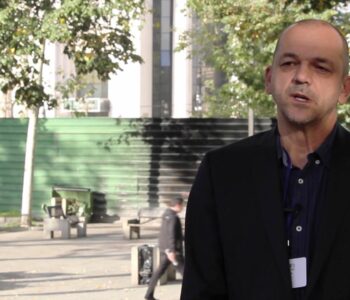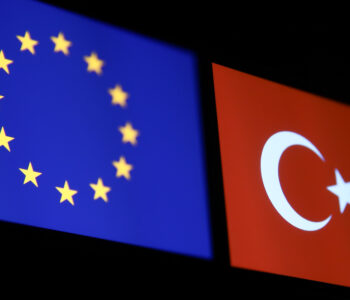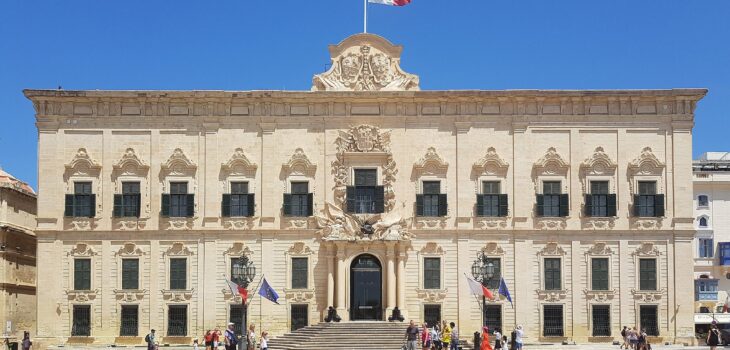
Malta: Lack of proper public consultation affects the quality of media laws
Seemingly indifferent attitude of government towards consultation has resulted in weak draft media laws
By IPI contributor Elizabeth De Gaetano, The Shift News
The 2018 assassination of Ján Kuciak and his fiancée Martina Kušnírová in Slovakia occurred just months after that of Maltese journalist Daphne Caruana Galizia, in October 2017, raising urgent questions about the state of press freedom in both countries. However, the outcomes could not be more different.
While Kuciak’s death brought investigative journalism to the forefront of public debate and led to legislation to better protect journalists, the same cannot be said for Malta, where justice for Caruana Galizia remains elusive as the government resists much-needed reforms.
In Malta, a lack of political will and differing interpretations of what constitutes public engagement has resulted in a public consultation process on proposed media legislation that produced no significant outcome. It also means that several laws affecting press freedom in Malta are flawed in their current form.
On February 15, the government-appointed Committee of Media Experts held a half-day conference as part of a public consultation on the proposed legislation to protect journalism in Malta. The Minister of Justice, Jonathan Attard, responsible for the proposed legislation, had been invited to speak at the conference. However, he did not attend or send a representative in his stead.
The chairman of the committee, retired judge Michael Mallia, who also chaired the Daphne Caruana Galizia public inquiry, told the audience. “Where it [the exercise] goes from here, I cannot say,” but not before noting that the government appeared to be ignoring the committee’s most significant recommendations.
Public consultation as a box-ticking exercise
This lack of progress on the government’s proposed changes to Malta’s media laws is unsurprising, given how fraught the entire process has been.
In July 2021, an independent public inquiry into the circumstances surrounding Caruana Galizia’s murder concluded that the state “should bear responsibility for the murder”. Although Prime Minister Robert Abela called an extraordinary parliamentary session to discuss the inquiry’s report, he never committed to a timetable for implementing the inquiry’s recommendations.
The board’s recommendations for journalism include various laws and constitutional changes, including a law to ensure journalism is self-regulated and a constitutional amendment recognising an individual’s right to receive information from the state. The board also recommended a revision of Malta’s Freedom of Information Act (FOI) and a revision of the constitutional provisions of Malta’s Broadcasting Authority.
To date, Malta’s government has only fully implemented one of the 28 key recommendations made by the board of inquiry.
When the opposition later tabled several bills in parliament based on the public inquiry’s recommendations, the government shot them down.
Instead, it hastily set up a Committee of Media Experts who were given three months to submit their comments and suggestions on the draft laws already prepared by the government but who were never consulted during the drafting process. Furthermore, the government demanded that the committee keep its discussions confidential, excluding many media and journalism stakeholders.
The Committee of Media Experts then submitted its recommendations and proposals in June. But nothing was heard until late September when Justice Minister Jonathan Attard made the government’s proposals public at a press conference.
As a result, the committee’s main recommendations were ignored, and the draft law was submitted to parliament in early October. These included proposed amendments to the law on the safety of journalists and on Strategic Lawsuits Against Public Participation (SLAPPs), which, however, did not meet international standards.
More than a hundred Maltese journalists, academics and artists then wrote to Prime Minister Robert Abela, urging him to hold a public consultation on the proposed legislation.
The prime minister initially resisted, but after two members of the Institute of Maltese Journalists (IĠM) threatened to withdraw from the committee of experts, he finally halted the parliamentary process and promised to open the legislation to public scrutiny.
In practice, all the government did was delegate the public consultation process to the Media Experts Committee. The same committee, whose main recommendations had already been ignored and which the government blamed for the lack of consultation, was tasked with consulting the public and returning with a revised set of recommendations.
Differing views on what constitutes public consultation
When the media community wrote to the prime minister asking him to open the proposed legislation to wider scrutiny, he insisted that the committee could have consulted with whomever it wished – although the published correspondence by the committee shows this was not the case.
Similarly, in an official response to an alert from the Council of Europe’s Platform for the Safety of Journalists, Minister of Justice Jonathan Attard repeatedly insisted that the government had held broad public consultations with various stakeholders on its proposed media bills.
His response also stated that the bills tabled in the House of Representatives on January 27, 2022 were available to the public and “open for scrutiny and review by the public at large”.
The minister was referring to a document containing an early draft of the legislative proposals for the media that the prime minister presented in parliament following a parliamentary debate in which he claimed the opposition had been consulted about the draft media proposals.
Legal experts pointed out that tabling a document in the House of Representatives because it was mentioned in a speech in Parliament does not amount to public consultation.
Legislation without consultation
These loose notions of what constitutes public consultation by Malta’s top officials point to a wider problem in the government’s approach when drafting legislation.
The European Commission’s 2022 Rule of Law Report noted with concern that Malta has no rules or guidelines on public participation in the drafting of legislation. There are, however, various channels for consulting the public, but these are subject to the discretion of the Ministry preparing the initiative. Nor is the government bound or required to publish the feedback it receives.
This discretion may explain why ministers in Malta have such a poor grasp of what a full public consultation should entail and why the government often chooses not to consult at all. This has affected several laws related to media freedom in Malta.
For example, the amendment of Malta’s Protection of Whistleblowers Act was passed without any public consultation and is considered inadequate. The law reform was passed just in time to meet the deadline for implementing the EU directive on improving the protection of whistleblowers.
According to Parliamentary Assembly of the Council of Europe (PACE) rapporteur Pieter Omtzigt, the reform does not provide any real protection for whistleblowers and “ignores the Directive’s requirements for transparency, including regular monitoring of the impact of the legislation”, adding that the law was “rushed through without any meaningful consultation”.
A recent report by the civil society group Reppublika also outlined how the amended law failed to address a fundamental flaw, namely the extent of government influence over whether a potential witness is granted whistleblower status.
In another instance, the government issued a legal notice empowering the director general of the court – a state official who reports directly to the Ministry of Justice – to decide which court judgments can be removed from the online database of judgements available to the public, without any criteria or controls to ensure that the system is not abused. Media organisations and legal experts strongly opposed the move.
The same can be said of the legislative reform of Malta’s Freedom of Information (FOI) Act. Not only has there been no public consultation, but the government is refusing to publish the report it commissioned to review the law.
The report was commissioned following pressure by the Council of Europe because the current law cannot guarantee its stated aim. But despite its completion two years ago with an accompanying bill to be presented to Parliament, the report is being kept under wraps. A Freedom of Information request by The Shift to see the report was also refused.
Malta and Slovakia – same problem, different results
In Slovakia, the assassinations of Ján Kuciak and Martina Kušnírová led to far-reaching changes, including progress on press freedom. In Malta, the fifth anniversary of Caruana Galizia’s killing was marked by a lack of significant reform.
While in Malta, the independent media community struggles to make headway with the government, in Slovakia, legislative reforms adopted by the current government were approved after regular consultations with its journalistic stakeholders. These included important bills strengthening the legal protection of the confidentiality of journalistic sources and increasing the transparency of media ownership and funding.
In Malta, the government refuses to publish its report on amendments to its FOI laws. In Slovakia, freedom of information and government transparency rules have improved significantly, and the country now has one of the best FOI laws in Europe.
This is not to say that there are no challenges to media freedom in Slovakia, and the fight against impunity is not over. But if the quality of legislation can also be judged by the level of consultation that precedes it, Slovakia and Malta have respectively illustrated what the resulting legislation looks like with and without broad consultation.
This article was commissioned is part of the Media Freedom Rapid Response (MFRR), a Europe-wide mechanism which tracks, monitors and responds to violations of press and media freedom in EU Member States and candidate countries. The project is co-funded by the European Commission.

